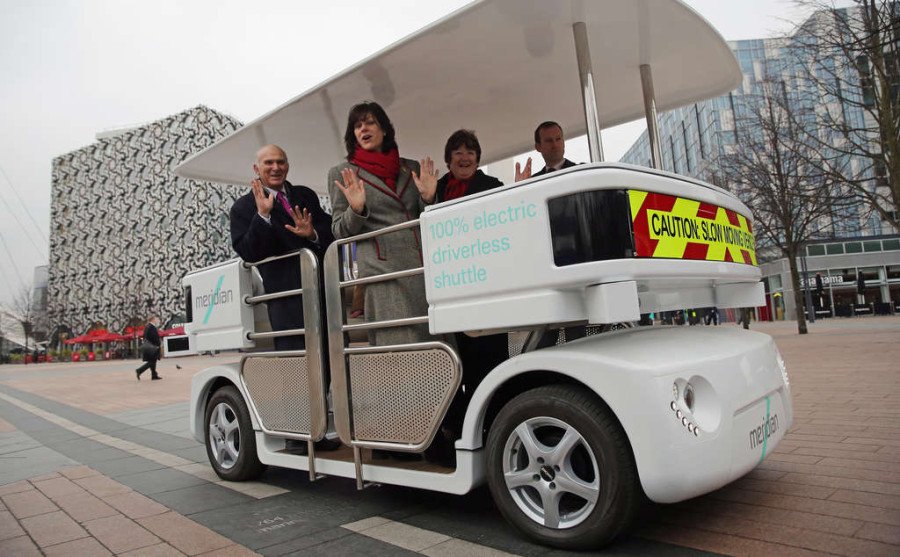
A shuttle is being tried out in the London borough of Greenwich and an electric pod will be used on closed roads and pedestrian areas in Milton Keynes and Coventry. The test is being conducted in teh hope that the UK will become the leading global supplier of driverless vehicles to the world.
Vehicles trialled in Bristol will also help gauge public reaction to the cars and assess legal and insurance issues.
Business Secretary Vince Cable said: ‘The UK is at the cutting edge of automotive technology – from the all-electric cars built in Sunderland to the Formula One expertise in the Midlands.
‘It’s important for jobs, growth and society that we keep at the forefront of innovation, that’s why I launched a competition to research and develop driverless cars.
‘The projects we are now funding will help to ensure we are world leaders in this field.’
The Government says there are no legal barriers to the testing of automated vehicles on public roads.
Dr Nick Reed from the Transport Research Lab, which is running the Greenwich trials, said the shuttles use sensors to avoid hazards.
‘Safety is paramount in our research and the vehicle is detecting moving objects around it, and if pedestrians are moving into its path it will slow down, and if they continue into its path it will come to a safe stop ahead of the pedestrian,’ he said.
It is hoped Government funding will help British designers get ahead of competitors.
In the US, Google has been testing its version for several years and car companies have been showing off their designs.
For the UK trials, a qualified driver will be ready to take control if necessary.
David Williams, head of underwriting at insurance firm Axa, said: ‘Currently whoever is driving the car, or cars, are responsible for the accident, but going forward what’s it going to be?
‘Is it going to be the manufacturer of the vehicle? The person who programmed the software? And it gets even more complicated – most of these vehicles, they’re not driverless all the time, they have the ability for people to interact and take over.’
It is thought that driverless cars could eventually save motorists six working weeks a year in driving time, improve safety, reduce congestion and cut emissions.
But there are years of rigorous testing ahead before they become an everyday reality.
– Source: SkyNews.com.au




Be the first to comment